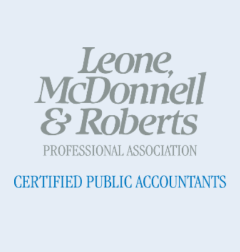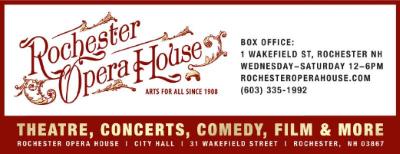It only took 82 years and it's only four million bucks - a relatively modest sum for an electric utility that collected $141 million in revenue from its customers last year. But it is still a glorious milestone in the history of New Hampshire's alternating current.
The New Hampshire Electric Co-op (NHEC) celebrated Cinco de Mayo by announcing that on July 1 it will be returning that $4 million to customers. The Co-op refers to its customers as "members," and well it should.
Unlike investor-owned utilities - think Eversource, Liberty, and Unitil - an electric co-op is actually owned by its customers, who also govern the whole operation in democratic fashion via an elected board of directors. There are no outside shareholders demanding a return on their investment, which leaves the New Hampshire Electric Co-op free to apply every cent of wealth it produces to the greater good of the homes and businesses the cooperative serves.
Electric cooperatives exist in nearly every state, and we actually have our investor-owned utilities (IOUs) to thank for them. During the Great Depression, the IOUs refused to wire up rural America, consigning millions of people to misery, poverty, and disease while the utilities focused on the vastly more profitable goal of lighting up the megalopolis. In desperation, the Roosevelt Administration turned to the cooperative model.
Arguably among the most successful elements of the New Deal, the Rural Electrification Act of 1936 solved this problem by offering inexpensive federal loans to communities willing to start electric cooperatives. Hence the founding of the NHEC in 1939.
IOUs are a great idea for providing electricity. Through IOUs, we get to apply the investment capital of shareholders - leveraged with a roughly equivalent amount of borrowed money - to the provision of an essential public service. The Public Utilities Commission exists to make sure they don't charge too much money to their captive customers.
In this sense, the lack of profit-seeking investors is a mixed blessing for an electric cooperative. Customer-ownership is inherently a great thing, but the paradigm requires customer-members to pony up the capital themselves. Thus a mandatory capital contribution is an essential component of an electric cooperative's rates.
Instead of enriching shareholders, cooperatives are supposed to return any surplus to members. The Hanover Consumer Cooperative Society - the Upper Valley's little grocery empire that is actually three years older than the NHEC - has paid out so-called "patronage refunds" to its members quite frequently over the years.
In the world of electric cooperatives such refunds come in the form of "capital credits." But, nationally, cooperative utilities are notorious for somehow never getting around to issuing such checks.
Until now, for the NHEC.
For what it's worth, the NHEC has a good excuse for not returning any capital credits until now: Seabrook. Everyone remembers that massive delays and even more massive cost overruns at the nuclear plant drove Public Service Company of New Hampshire into bankruptcy in 1988. Fewer people recall that the NHEC also invested in Seabrook and also filed for bankruptcy, three years after PSNH did. Insolvency has a way of setting an electric co-op back by a few decades when it comes to having enough in the bank to return capital to members.
When an electric co-op gets around to issuing capital credits, it faces an interesting problem. Do you pay off today's members, or do you send checks to the people who actually contributed the capital in years past?
Paying off those members who have been waiting the longest seems inherently virtuous, but of course there's a problem: Many of them - perhaps even most of them - are now member-owners of that great big cooperative in the sky (so to speak). An earthly refund of capital from the NHEC won't do them much good.
As a concession to that reality, and presumably in the interest of fairness, the NHEC will pay $2 million to past members and $2 million to current ones. It won't go all the way back to the Great Depression; the eligible past members will be those who contributed capital via their electric bills in the years 1971 to 1982.
According to the NHEC, it wasn't until 1971 that the organization had any "margin" - i.e.,profit - to allocate on paper to members. Though I haven't seen the NHEC's internal books and records - its rates are not regulated by the PUC and so your friendly neighborhood ratepayer advocate has essentially no jurisdiction over them either - it seems reasonable to buy the explanation that prior to 1971 all available resources were devoted to the initial build-out of the electric distribution network in the co-op's almost entirely rural territory.
As for the $2 million earmarked for current members, that means those who took service in 2020 will receive a bill credit in July. Members who took service last year but then moved away and are no longer taking service from the NHEC can expect a check in the mail.
"Because of the financial stability that NHEC has achieved over the years, we expect to be able to return equity to our members on a regular basis as we go forward," said NHEC Board Chair Tom Mongeon. If you are a member of the NHEC, Mongeon is your elected representative and you should hold him to that pleasing prediction.
The rest of us, alas, just get to watch and feel jealous. But there's always hope: An effort to turn Central Maine Power into a customer-owned utility via a citizen referendum has been bouncing around and might find its way onto statewide ballots in Maine next year. And as Maine goes, so goes the nation!
Power to the People is a column by Donald M. Kreis, New Hampshire's Consumer Advocate. Kreis and his staff of four represent the interests of residential utility customers before the NH Public Utilities Commission and elsewhere.














